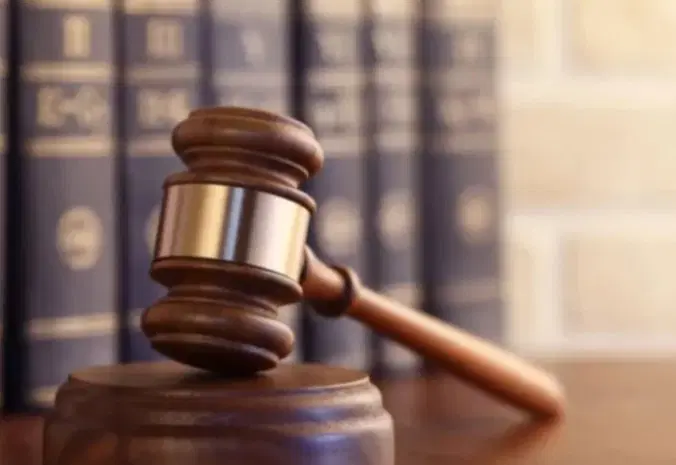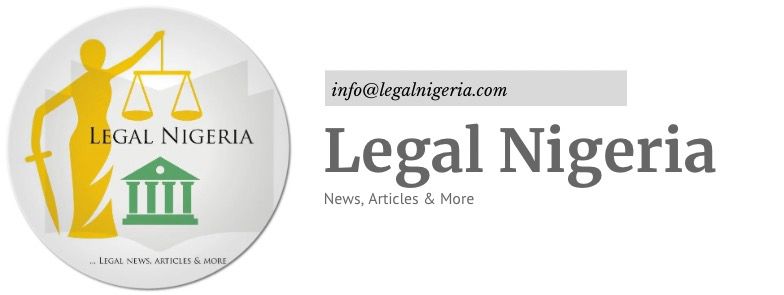
By Ebun-Olu Adegboruwa, SAN
The first part of this article which was published in March 2025 traced the foundation of human rights enforcement, in making a case for judicial activism from the Bench for the protection and enforcement of fundamental rights.
In the previous regime of the Fundamental Rights (Enforcement Procedure) Rules, 1979, two major issues hindered effective filing and prosecution of fundamental rights cases; you must first seek and obtain leave to bring the application and it could only be filed by the applicant who is the victim of the alleged violation.
After so many years of active campaigns and engagements by all stakeholders, the Chief Justice of Nigeria reviewed the FREP Rules leading to the current version of 2009, removing these hindrances, widening the scope of locus standi to extend legal capacity to civil society organisations and pressure groups like the Nigerian Bar Association.
However, the purport of section 42 (1) of the Constitution in relation to fundamental rights cases has never changed in placing the burden of proof on the respondent to justify the circumstances of infringement of fundamental rights.
Thus, the jurisprudence of human rights in the area of burden of proof is different from the regular civil cases where the onus is on the party alleging the existence of certain facts to prove it. Thus, when prosecuting and law enforcement agencies started changing the narrative to convince the courts to shift the onus of proof on the applicant in fundamental rights cases, it became worrisome, not so much out of opposition to the anti-corruption campaign, but rather, the need to place human and fundamental rights in their proper perspectives.
When we trace the origin of Chapter IV of the Constitution itself from the heroic struggles of our forebears to the Report of the Sir Henry Willink Commission and eventually, the Constitutional Conferences convened thereafter, it becomes easy to understand the rationale for insisting on the supremacy of the provisions contained in Chapter IV over and above other legislations being deployed against human rights cases.
This will not translate to an endorsement of corruption or other unlawful acts, given that the option is always available to utilise existing laws for the prosecution of any established breach. I fully support and endorse the campaign to safeguard the public treasury from pilfering and wanton abuse but such must be subject to the rights granted to all citizens by the Constitution.
In most cases, the respondent who is accused of violating the rights of the applicant possesses all the instrumentalities of coercion, authority and means, such that it may at times be very difficult for the applicant to discharge the burden of proof of the alleged violation in the absence of pro-active judicial intervention.
In this regard, it is strange to ask a citizen to show proof of why he should not be arrested or detained, or to convince the court why his property and assets should not be forfeited, confiscated or acquired. And in very absurd cases to ask him to justify why his life should not be terminated recklessly by those employed to protect him.
It is against this background that I share with you the facts of the decision of the Supreme Court in the case of Melrose General Services v Economic and Financial Crimes Commission (2025) 1 NWLR (Pt.1972) page 1 as it affects human rights litigation in Nigeria.
On May 26, 2016, the Nigeria Governors Forum entered into a consultancy agreement with GSCL Consulting and Bizplus Consulting Services Limited (the Consortium) by which the Consortium was engaged as sole consultant for each and all of the 36 States of the Federation with full authority to act for them on the verification, reconciliation, and recovery of all over-deductions on the Paris and London Club Loans made between 1995 and 2002.
It was also agreed that the Consortium would be paid 2% of the total amount recovered as its consultancy fee, which would be deducted at source. Further, by letters dated May 31, 2016 and August 3, 2016, the Nigeria Governors Forum notified the Minister of Finance that the Consortium was the sole consultants for each and all 36 States with full authority to act for them on the verification, reconciliation and recovery of all over-deductions on the foreign loan accounts.
The Consortium carried out the verification and reconciliation of over-deductions and it found a total sum of US $6,483,282,424.61 as due for refund to the 36 States of the Federation and it submitted to the Nigeria Governors Forum, its report dated August 31, 2016 showing the details of the debt profile and the over-deductions.
The Nigeria Governors Forum wrote a letter forwarding the Consortium’s report to the Minister of Finance and the Debt Management Office. After a meeting between the Debt Management Office and the Consortium on the contents of the report on October 10, 2016, the Governors of the 36 States wrote letters to the Minister of Finance furnishing the details of the account wherein the refunds due to each of the 36 States should be domiciled and authorising the deduction and transfer of 5% of the sum so due to each State to the account of the Nigeria Governors Forum to defray consultancy fee and incidental expenses.
Payment being contested
Subsequently, on the written recommendations of the Minister of Finance, the President of the Federal Republic of Nigeria approved the payment of 25% of the total sum of refunds arrived at in the report of the Consortium to the respective States. And the part-payment of the refunds was made on November 21, 2016. Further, as requested, by the Governors of the 36 States, the Minister of Finance paid 5% of the sum due to each State into the account of the Nigeria Governors Forum to enable it to defray consultancy and incidental expenses.
On December 14, 2016, the Nigeria Governors Forum paid the Consortium a part of its agreed consultancy fee of 2% of recovered deductions. On that same day, December 14, 2016, the Nigeria Governors Forum also paid into the appellant’s Access Bank account, a consultancy fee of N3.5billion being 0.77% of the recovered deductions on the basis of a report submitted by the appellant to the Nigeria Governors Forum under a letter dated November 29. 2016.
After receipt of the money, the appellant paid N200,000,000 to the 2nd respondent as investment in its business and N20,000,000 as a loan to the 3rd respondent to aid its business.
EFCC intervention
Later, the 1st respondent, EFCC, received reports of suspected cases of stealing, conspiracy, obtaining money by false pretences and money laundering by the appellant and others concerning the monies received by the appellant from the Nigeria Governors Forum and the money the appellant paid to the 2nd and 3rd respondents.
The 1st respondent’s Special Task Force Unit carried out an investigation into the reports during which it invited the appellant’s Chief Executive Officer, one Mr. Robert Mbonu who went to the 1st respondent’s office on January 27, 2017, and the 1st respondent obtained extra-judicial statements and relevant documents during its investigation.
On October 5, 2017, by an ex-parte originating motion filed at the Federal High Court under section 17 of the Advanced Fee Fraud and and Other Fraud Related Offences Act, 2006, the 1st respondent sought and obtained interim orders forfeiting N1,222,384,857.84 found by the 1st respondent in the 1st appellant’s bank account domiciled in Access Bank Plc, and forfeiting the total sum of N220,000,000 recovered by the 1st respondent from the 2nd and 3rd respondents which sums of money were reasonably suspected to be proceeds of unlawful activity.
The 1st respondent also obtained an order directing it to notify the appellant, the 2nd and 3rd respondents, and any interested person about the orders and to appear before the trial court to show cause within 14 days why the moneys should not be forfeited to the Federal Government of Nigeria.
The 1st respondent’s case was that the N3.5billion paid to the appellant was fraudulently obtained by the appellant from the Nigeria Governors Forum while purporting to have carried out a consultancy job for the Nigeria Governors Forum. The 1st respondent insisted that there was uncontroverted evidence that the Consortium carried out the verification of the London Paris Club Refunds; and that the appellant had within a short time made several withdrawals from the N3.5billion leaving a balance of N1,222,384,857.84 before the 1st respondent intervened.
Judicial intervention
Subsequently, by a motion on notice filed on October 26, 2017, the appellant applied for the setting aside of the interim orders of the trial court and the setting aside of the Post No Debit Order placed on the appellant’s bank account at the request of the 1st respondent. The appellant also sought the release to the appellant, the sum of N1,222,384,857.84 in its bank account, and the release of N220,000,000 as monies legitimately earned by the appellant but wrongly retrieved/recovered from the 2nd and 3rd respondents.
The appellant asserted that it sent a written proposal dated August 3, 2016 to the Nigeria Governors Forum to provide consultancy services to the latter. And on the basis of that proposal, then chairman of the Nigeria Governors Forum, by a letter dated August 8, 2016, conveyed the Nigeria Governors Forum’s decision to engage the appellant to “verify and reconcile the data already generated in respect of the over-deductions on State and Local Government accounts on the London and Paris Club debts for the period 1995-2002.”
The appellant stated that the Nigeria Governors Forum also executed a written agreement with the appellant under which the Nigeria Governors Forum gave the appellant all relevant documents including the report of the Consortium to review. The appellant averred that upon the conclusion of the verification exercise, it forwarded a report to the Nigeria Governors Forum under its letter dated November 29, 2016, and that the report stated its activities on the already existing data and also stated that the exercise it carried out was to verify and reconcile already generated reports submitted to the office of the Director General of the Nigeria Governors Forum, and by so doing, aided the recovery of the unaccounted deductions made during the first line charge policy of June 1995 to March 2006.
Further, the appellant deposed to the fact that on the conclusion of its tasks, the 36 States successfully recovered the sums that were due to them and the Nigeria Governors Forum paid it the sum ofN3.5Billion representing 0.77% of the amount recovered as its consultancy fees.
In support of its case, the appellant attached several documents to the affidavit in support of its motion. They included: the Nigeria Governors Forum’s letter dated 8th August 2016 (exhibit MGS 2); the contract between the Nigeria Governors Forum and the appellant (exhibit MGS 3); the report, which the appellant forwarded to the Nigeria Governors Forum under cover of its letter dated 29th November 2006 (exhibit MGS4).
However, exhibit MGS3 was undated, did not specify the consultancy work the appellant was engaged to do, and it did not incorporate either expressly or indirectly the contents of the letter of appointment dated 8th August 2016.
Source; Vanguard News








